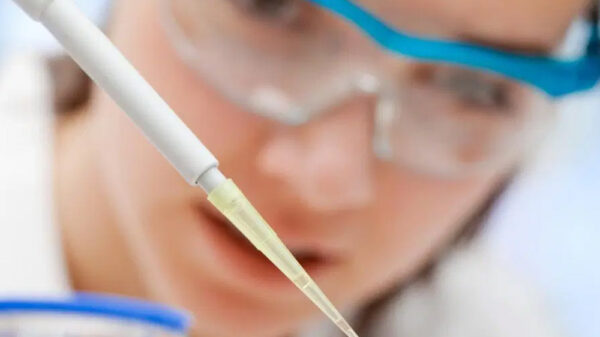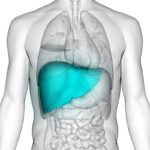Do you think you might have liver cirrhosis? This is one of the late stages of liver disease, which is linked to about 10% of global deaths. If you have reduced liver function it’s important to be certain whether or not you’re experiencing liver scarring. There are various symptoms to look for. However, the best way is through cirrhosis test. This includes different kinds of tests like blood tests, and imaging tests like CT-scan and MRI. A doctor orders these tests after conducting a physical exam to determine if you likely have cirrhosis of the liver. A biopsy is usually done to verify the results of the previous tests.
Before such tests are run it’s important to know some of the common symptoms of cirrhosis. They include fatigue, nausea, swelling (feet/ankles), itchy skin, and loss of appetite. These symptoms are quite common so if you experience them it’s important to find out if they’re signs of cirrhosis or something else. You should consider factors like how often and severe the symptoms are. IF you already have conditions like fatty liver disease (FLD) or liver hepatitis then also a greater chance you have cirrhosis. An exam and lab tests can help to figure out everything.
What in the World Is Liver Cirrhosis?
This is the first issue to take up before talking about the various tests that are available. Liver disease is one of the serious illnesses like liver cancer related to the body’s largest solid organ. This is one of the disease’s late stages and involves fibrosis (scarring) of the liver.
There are actually several causes of this condition. When people think of cirrhosis they often think of heavy alcohol drinking as one of the main causes of this condition. While it is there are others including infection like Hepatitis.
When we think of scars it’s usually as something that results from damage. While that’s the case with liver scarring it’s a little more complicated. The liver forms scar tissue to protect itself from further damage. It’s like age spots on the skin to avoid more skin damage from UV rays.
This scarring also causes problems for the liver’s function. That’s because the scar tissue affects how well the liver works. This includes different functions like ridding the body of toxins and other functions. In late-stage cirrhosis, the liver is unable to do basic functions, which results in “liver failure.”
People might wonder if it’s possible to reverse cirrhosis-caused damage. That’s not practical because it’s major done to the organ. However, it IS possible to slow down how fast damage is done to the liver. This is a plus because it can help to preserve liver function and even extend the patient’s lifespan.
There are various symptoms to watch out for if you think you might have cirrhosis. They include:
- Red palms
- Nausea
- Bruising/Bleeding
- Weight loss
- Confusion, loss of focus
- Jaundice (yellowish eyes/skin)
- Leg/Ankle swelling
- Web-like blood vessels
- Lower sex drive
- Appetite loss
- Fluid buildup in the abdomen
- Fatigue
- Itchy skin
There are also several risk factors. They include overweight/obese people, heavy drinking, Hepatitis A/B/C,
Cirrhosis Tests
1. Blood Tests
This is one of the main types of tests to check if you have cirrhosis. For example, there’s a liver test that looks for high/low enzyme levels. This could be a sign that you have liver damage. There are certain types of enzymes the lab technicians will check including ALT, AST, and ALP.
The doctor might order other tests like complete blood count. This shows factors like red blood cells (RBC), white blood cells (WBC) and platelets. These are all important factors that might show signs of conditions like anemia.
Another common test is for infections like Hepatitis B/C. These are some common infections that are often related to liver cirrhosis.
Yet another test that might be run is to check the blood’s levels of “bilirubin.” If there are high levels then this could be a sign that the patient is suffering from cirrhosis. The reason is it shows the liver isn’t functioning properly, which results in higher levels of bilirubin.
2. Imaging Tests
These are other important tests that are done to check for liver cirrhosis. They include ones to show factors like the liver’s shape, size, and texture. These are all critical to check for scarring damage to the vital organ.
The doctor can then check test results to learn if scarring is improving/worsening. Another key factor is the amount of fat in the liver. This is critical because it’s actually what causes the first stages of liver disease.
There are different imaging tests that are used. They include ultrasound, MRI, CT scans, x-rays, and others. These are different tests but the goal is to provide a visual for doctors so they can review the form/function of your liver in terms of cirrhosis.
3. Biopsy
This is done to verify the results of the blood/imaging tests. This process involves examining a small sample to verify those results.
Top Natural Cirrhosis Treatments
Antioxidants
Some of the most natural ones include Vitamins A, C, and E. There are others including a super-powerful one in beef. What’s the big deal? Antioxidants are effective at fighting off free-radicals. These molecules can cause various problems. They attack healthy cells and can cause damage to your liver based on their imbalanced structure.
Weight/Fat loss
Fatty liver is one of the main factors that can lead to liver cirrhosis. Make sure to watch your weight. This can be done by cutting calories, carbs, sugar, etc. You don’t necessarily have to go low-carb like Keto, for example.
The key is to find a diet program that works for you. That can include one with a good track record and is backed up by solid science. This will give you the best chance of losing weight.
Herbal supplements
It’s worth noting that herbal supplements don’t have the strong chemicals of prescription drugs. In some ways that’s a plus. That’s because you won’t be dealing with strong chemicals that are more likely unwanted side-effects.
However, there’s less research done about herbal supplements versus prescription meds. Make sure to research how effective certain supplements are for treating liver disease. In many cases, there is little/no research about certain options.
Stop drinking alcohol
This might seem like an easy step to take. However, it can be tough if you have an alcohol addiction. You might need some help like counseling and support groups. The problem with alcohol addiction is that you become dependent on the beverage. It’s not like drinking a glass of wine with dinner, for example.
If you’re experiencing late-stage liver disease then it’s highly recommended to quit all alcohol drinking. That’s because you’re already dealing with serious liver disease. You should thus think about extreme options like quitting cold turkey after having cirrhosis test.























